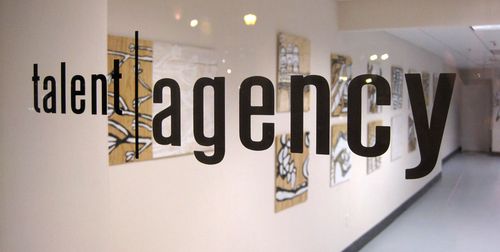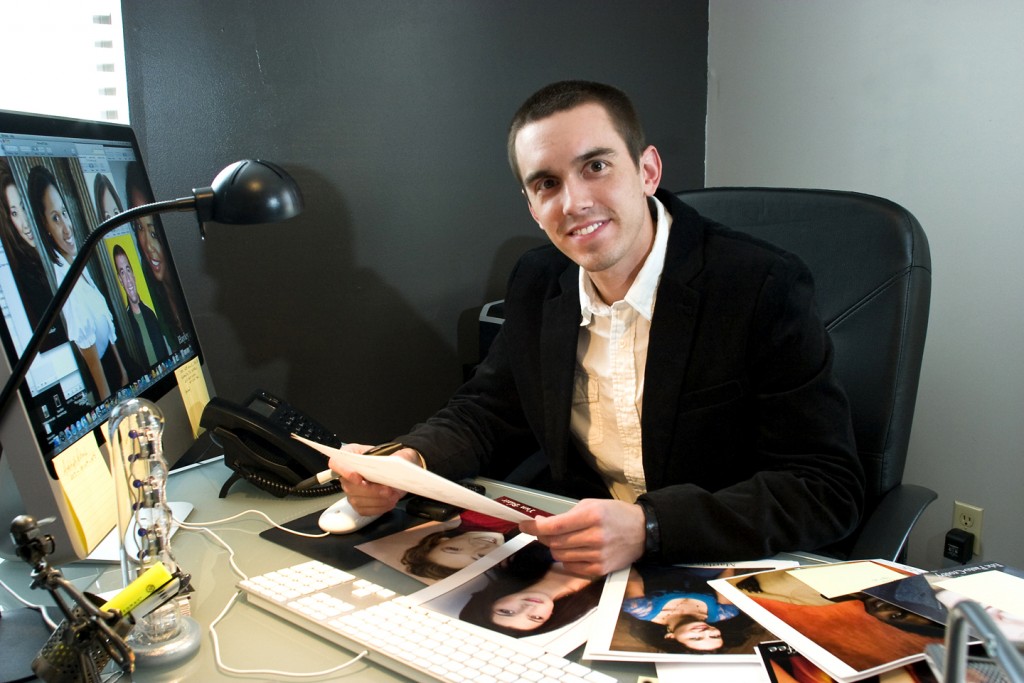It’s a step most of us make when we’re seeking an upgrade in our careers.
You might have thought this moment would never come, but here it is: the time might be now to work with a representative in order to advance in your career in entertainment. You probably heard that the top talent agencies are concentrated in Los Angeles and New York and you have a vague idea about how the whole deal works, but choosing a talent agency and starting a collaboration isn’t simply piece of cake. There are several aspects you need to consider, analyze and compare before you end your search and call it a day. Let’s take a look at the context, criteria and some decision-making aspects in regards to choosing your talent agent. If you evaluate your choice correctly, you might someday join Michelle Pfeiffer, Meg Ryan or Bruce Willis and Jim Carrey over at CAA!
Are You Ready?
It’s not like there will ever be a right time to do stuff and upgrading your career is a big step, but have you positioned yourself in the best context to start engaging into a collaboration with a dedicated agent? You should self assess the level of development you have gained in your craft, evaluate your image and increase your chances to succeed by gathering all your strengths together. It’s a wild industry!
Understanding the Mechanism
First things first. Read and inform yourself about the way this cookie crumbles. Talent agencies consist of services provided by talent or booking agents who represent, defend, promote and support you. They are supposed to find you jobs or gigs and they work with plenty of talent: authors, screenwriters, directors, musicians, actors, models, athletes, producers and even broadcast journalists. Agencies are either specialized on one or a few specialties or develop departments inside a larger organization. Typically, the bigger the agency, the more specialized the agents are, like most of NYC or LA organizations.

Some talent agencies are united in professional associations. While it is definitely not mandatory to work with an agent, it is a very good idea to do so for several reasons.
Basically, the agent addresses his work towards two sets of clients: the artist (actors, screenwriters, producers, directors, voice actors, kids or teenagers as models or actors, etc) and the buyer (a casting director, a production company, a photographer or an advertising agency. Using your head shots, the agent fixes matches between the needed typology and appropriate talent (criteria is usually age, sex, look, race, availability, talent, etc). The agent’s job doesn’t stop here: once the buyer has chosen some actors, for an example, the agent needs to organize the other side of the team by the means of an audition. If the buyer is interested in acquiring any of the talent and hire the agent’s people for a job, it’s the final task for the agent to negotiate aspects of the contract and also the fee. Union jobs (SAG-AFTRA) are usually paid according to negotiated guidelines, opposed to non-union jobs, but these suffer a delay in payment from time to time.
If you are at the beginning of your career, keep in mind that an experimented agent with a large talent roster and an overbooked schedule might not focus on representing your best interest like a more motivated agent who is handling less talent.
Benefits of Collaborating with a Talent Agency
Working with an agent doesn’t mean that someone is robbing your independence away from you or making choices on your behalf. A booking agent is the professional who looks after your best interest and gets you auditions, commercials, collaborations in conditions you wouldn’t probably manage if you were by yourself. There are two ways this thing goes around: your talent agent responds to booking requests or fixes you deals you are demanding. Casting directors find it easier to create collaborations and professional relationships with a few agents who deliver what they are looking for, so basically the process of intermediating your future activities is ideally developed by someone skilled who has the time and experience to accelerate the whole deal. Strong agencies have even developed a further function, which involves them even more in the process of creating an entertainment product: client packaging. Thanks to the variety of clients an agency can get to represent, skilled agents combine the talents of several artists and deliver an optimal combination to sustain a project, like a producer – director – actor trio or coupled actors for designated story typologies and so on.
Last, but not least, the agent usually has plenty of connections and networks, as well as access to professional casting services. That means a monster deal of resources which isn’t available to the general public.
If you are interested in finding a representative for your child or baby, there are several agencies who have dedicated departments for kids too which can submit your talented youngster to audition for a commercial, film cast or voice cast.
Conditions
Usually, agents earn about 10% of your earnings and that’s why they’re often called ten percenters. Some agents demand that you go exclusive, some don’t – which gives you the possibility of simultaneously collaborating with several parallel agencies. Legal conditions are regulated depending on the legal jurisdiction in which the agency operates and some regulations are established by particular artist’s unions. Boutique agencies or elite representatives might operate with a higher percent and usually accept more pretentious submissions. Niched agencies (like those in the adult entertainment industry) have more specific conditions.

We gathered a list of relevant talent agencies from several states for you to start an easier search having an organized source.
- New York City: Ann Wright Representatives,Inc., Affinity Artists Agency, Artists Group East, Take 3 Talent, Atlas Talent Agency, Andreadis
- Los Angeles: Creative Artists Agency, Agency for the Performing Arts, Diverse Talent Group
- Beverly Hills: United Talent Agency, Momentum
- Seattle, Washington DC: Seattle Talent
- Philadelphia, Pennsylvania: Reinhard Model & Talent Agency
- Atlanta, Georgia: Aligned Stars Agency GA, Atlanta Models & Talent, J Pervis
- Hartford, Connecticut: John Casablancas Modeling & Acting Agency
- Chicago, Illinois: Paonessa Talent Agency, Gray Talent Group, Chicago Boutique Talent Agency
- New Orleans, Louisiana: Moxie Agency
- Dallas, Texas: Mary Collins Agency
- Houston, TX: Pastorini-Bosby
- Austin, TX: Collier Talent Agency
- Nashville, Tennessee: BNA Talent Agency, AMAX Talent TN
- Miami, Florida: Next Management, The Green Agency, Boca Models, Coconut Grove
- Orlando, FL: Azuree
- San Diego, California: Shamon Freitas
- Burbank, CA: RPM Talent
- West Hollywood, CA: Arete Talent
- Universal City, CA: Osbrink
- San Francisco, CA: MDT Talent, Scout Model & Talent
- Sacramento, CA: Cast Images Model & Talent Agency, Exalt Talent & Model Agency
- Las Vegas, Nevada: Goldman & Associates, Lange Talent & Model Agency, Spectrum Talent Model and Talent Agency
- Louisville, Kentucky: Heyman Talent
If you are a model looking for open calls, a writer looking for literary opportunities or a singer searching for jobs in the music industry, you also need to consider working with an agent from a specific point in time. If you are a dancer or a choreographer, you can consider an agency like bloc (in Los Angeles, NYC or Atlanta).
Tips for Determining Whether You’re Compatible with Your Agent or Not
- Check for your personal interests and approach on life
You don’t need to become best friends, but there is definitely a need for a strong interpersonal connection in order for this collaboration to work, a lot stronger than in other jobs or networks. If your agent doesn’t understand your personality, it won’t be enough that he only fixes you up where you belong aesthetically or visually.
- Endeavor to create a bond
Invest a bit of your time to get to know each other before you sign your contract. Try to find out some information about how your booking agent collaborated with other talent and search for reviews online.
- Practice some imagination exercises
Getting a booking agent usually means that you are determined to continue on the path of acting and you made some efforts – perhaps relocating from the capital of a smaller state to a larger metropolitan area in order to find a good acting class, investing some money and hopes. It’s only natural that you discuss some particular situations with your agent before you encounter them during your collaboration, and also healthier and safer for your future collaboration.
After signing a deal with a talent agency, don’t expect an immediate change or sudden bookings. It takes time until your agent identifies when and where exactly is the right moment for a pitch, he or she might also want to redo your resume and your head shots and redefine your portfolio. Under particular circumstances, your agent could suggest workshops or events you’d better attend. Ideally, your agent should have a relationship with other professionals who work for you like perhaps a PR agent or a manager. Some agencies can supplementary offer these services if you decide to opt for a wider range of representation, but keep in mind that every new person around your career is a form of control or authority.
